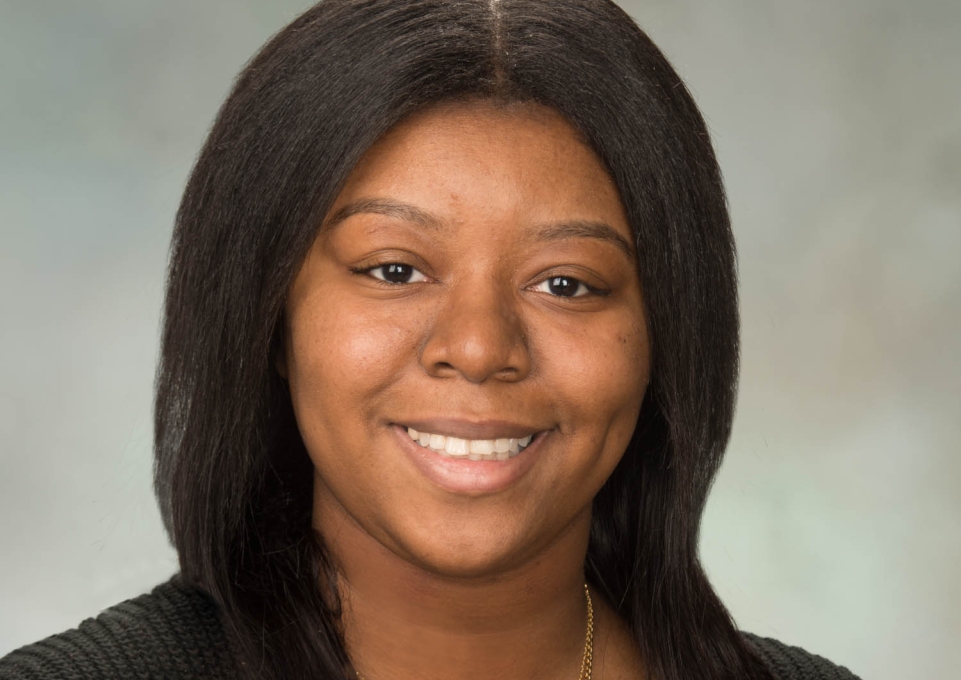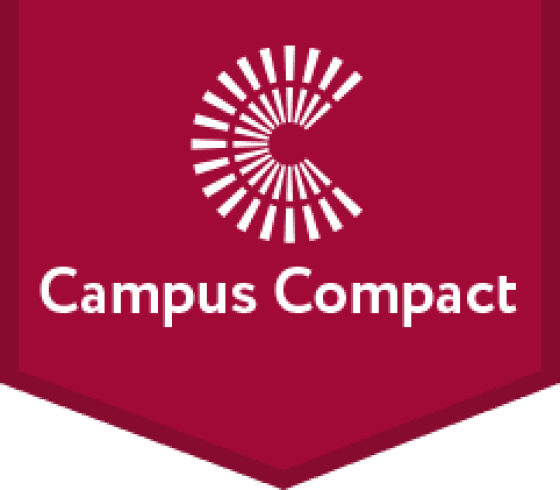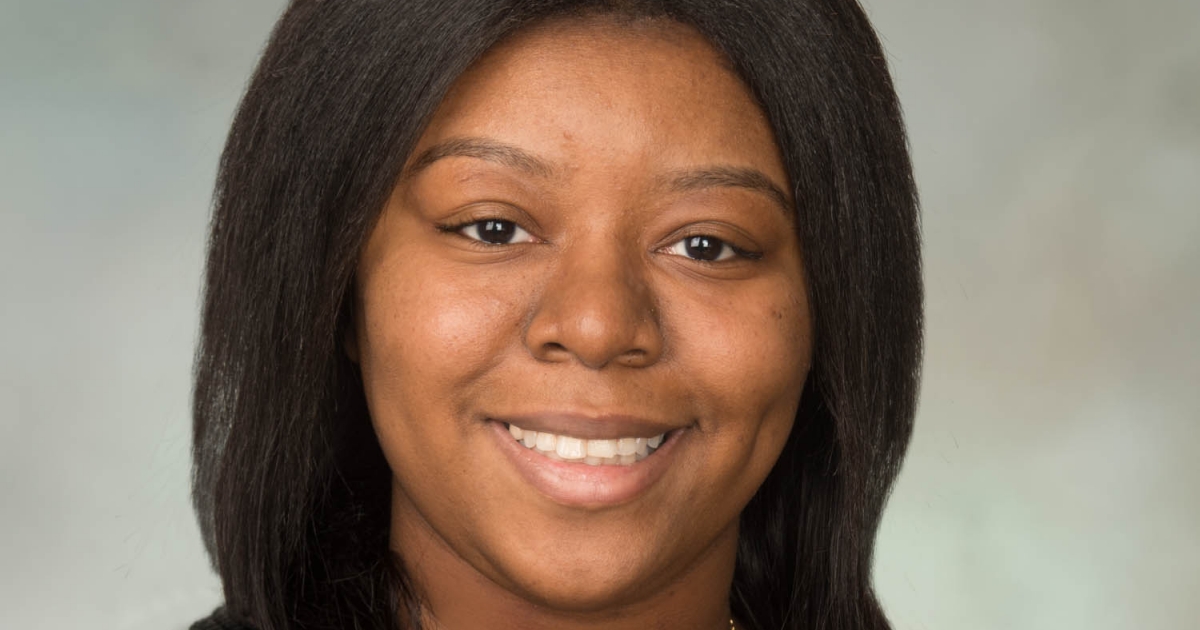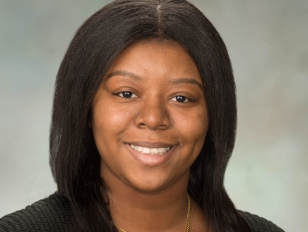
Buffalo State College junior Alia Williams is among 212 students who have been named a 2021–2022 Newman Civic Fellow by Campus Compact, a national nonprofit organization that works to advance higher education’s public purposes. The 2021 cohort comprises students from 39 states; Washington, D.C.; and Mexico.
An early childhood and childhood education major, Williams has mentored first-year Buffalo State students, tutored area children in kindergarten through sixth grade, and served as a leader in Tha Ink Club, Buffalo State’s poetry-based group. With Tha Ink, Williams has also volunteered with community organizations, including the Salvation Army and local nursing homes.
“Buffalo State College is wonderful when it comes to giving back to many diverse communities and providing opportunities for every student to get involved.”
“Buffalo State College is wonderful when it comes to giving back to many diverse communities and providing opportunities for every student to get involved,” Williams wrote in her personal statement as part of the fellowship nomination.
She first became involved in community service through the college’s Bengals Dare to Care Day, in which students volunteer with several community organizations one Saturday each fall. That experience, Williams said, compelled her to do more.
“I personally love one-on-one volunteering with nonprofit organizations because the connections can last a lifetime,” she said.
Williams said her professional goal is to enrich the lives of elementary school children and serve as a role model.
“As an early childhood and childhood education major, I find it incredibly important for students to see a diverse pool of teachers,” she said. “I’m more than aware of the lack of diversity represented in many school districts and recognize the importance of having students see themselves in their teachers—with similar look, background, and experience.”
The Newman Civic Fellowship is a yearlong program for students from Campus Compact–member institutions. Students selected for the fellowship are leaders on their campuses who demonstrate a commitment to finding solutions for challenges facing communities locally, nationally, and internationally.
“Alia serves others with an unwavering sense of compassion and social responsibility,” said Buffalo State President Katherine Conway-Turner. “She is prepared to educate and improve the lives of those around her, especially her future students.”
The fellowship is named for the late Frank Newman, one of Campus Compact’s founders, who was a tireless advocate for civic engagement in higher education. In the spirit of Newman’s leadership, Campus Compact member presidents and chancellors nominate student leaders from their campuses to be named Newman Civic Fellows.
“We are proud to recognize these extraordinary student leaders and thrilled to engage with them,” said Campus Compact President Andrew Seligsohn. “The experience of the last year has driven home to all of us that we need open-minded, innovative, public-spirited thinkers and doers. That is what Campus Compact is about, and the stories of our Newman Civic Fellows demonstrate that is who they are.”
Throughout the year, Campus Compact provides fellows with a variety of learning and networking opportunities that emphasize personal, professional, and civic growth. The cornerstone of the fellowship is the Annual Convening of Fellows, which offers intensive skill-building and networking over the course of two days. The fellowship also provides the students with pathways to apply for exclusive scholarships and postgraduate opportunities.

About Campus Compact
A national coalition of more than 1,000 colleges and universities committed to the public purposes of higher education, Campus Compact supports institutions in fulfilling their public purposes by deepening their ability to improve community life and to educate students for civic and social responsibility. It is the largest national higher education association dedicated solely to campus-based civic engagement. Campus Compact provides professional development to administrators and faculty to enable them to engage effectively, facilitates national partnerships that connect campuses with key issues in their local communities, builds pilot programs to test and refine promising models in engaged teaching and scholarship, celebrates and cultivates student civic leadership, and convenes higher education institutions and partners beyond higher education to share knowledge and develop collective capacity.
Photo by Bruce Fox, campus photographer.



